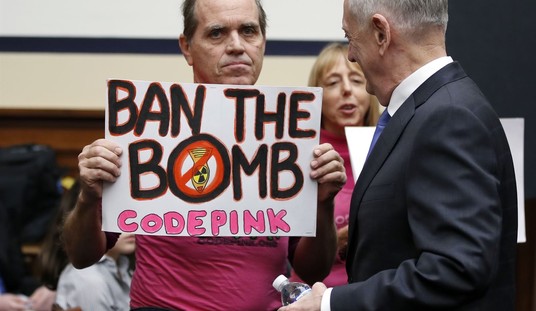First off, I really don't listen to K-pop, J-pop, or any kind of pop, but I have to say something on this.
The recent controversy surrounding K-pop group Kiss of Life’s hip-hop-themed live stream has sparked heated debate, with accusations of cultural mockery and racism leveled against the group. The four members—Julie, Natty, Belle, and Haneul—celebrated Julie’s 25th birthday on April 2 with a YouTube live stream embracing “old-school hip-hop vibes.” They donned oversized chains, snapback hats, and cornrows, lip-synced to 50 Cent’s “In Da Club,” and used nicknames like “Lil Taco Belle” and “Bob Sky.” The backlash was swift, with some fans calling it “modern-day blackface” and others accusing the group of treating Black culture like a “Halloween costume.” Kiss of Life issued a heartfelt apology on April 5, admitting their cultural insensitivity and promising to educate themselves. Yet, this incident raises a broader question: when does cultural appreciation cross into racism, and are we too quick to judge?
Never Forget ✊🏾 pic.twitter.com/wBVt0AqwS6
— sage (@hissirenseong) May 13, 2025
From a Kansas man's perspective, the rush to label this incident as racist overlooks the group’s stated intent and the complexities of cultural exchange. Kiss of Life emphasized that their goal was to celebrate old-school hip-hop, a genre that heavily influences their music. Hip-hop, born in Black communities, has become a global phenomenon, shaping music, fashion, and culture worldwide. For a K-pop group to draw inspiration from it is not inherently malicious. The members’ choice of attire and playful nicknames, while perhaps misguided, reflects an attempt to pay homage to a style they admire, not to mock or degrade it. Accusing them of racism assumes ill intent without evidence, ignoring the possibility that their misstep stemmed from ignorance rather than malice.
Kiss of Life really ruined their whole career with one live.
— вrie ⁸ ♡ SEEING SKZ & ATZ VIP!! (@3hyunyeol) May 16, 2025
RELATED: Dreadlocked Professor Says White People Aren't Allowed to Have His Hairdo
This situation highlights a double standard often ignored in cultural debates. When Black artists adopt elements of other cultures—say, Asian aesthetics—in their music videos or fashion, it’s often praised as creative expression. Yet, when non-Black artists, like Kiss of Life, engage with hip-hop culture, they face accusations of appropriation or mockery. This inconsistency suggests that cultural exchange is only acceptable in one direction, which stifles creativity and reinforces division. A conservative view values individual freedom, including the freedom to explore and blend cultural influences, so long as it’s done with respect. Kiss of Life’s apology shows they recognize their error and are committed to learning, which should be enough to move forward without branding them as racists.
The backlash also ignores the global context of K-pop. South Korea, where Kiss of Life is based, is a relatively homogenous society with limited exposure to Black culture outside of media. Expecting K-pop idols to navigate the nuances of American racial sensitivities with perfect precision is unrealistic. The group’s use of stereotypes, like oversized chains or cornrows, may have been clumsy, but it doesn’t equate to “blackface” or intentional harm. Blackface has a specific historical context rooted in minstrelsy and mockery, which doesn’t align with Kiss of Life’s actions. Labeling their stream as such cheapens the term and distracts from genuine instances of racism.
KCON announces that Kiss of Life won't be performing at KCON LA this year.
— About Music (@AboutMusicYT) May 16, 2025
"KCON and S2 Entertainment have mutually decided that Kiss of Life will no longer be participating in KCON LA 2025." pic.twitter.com/rDsfDnYBlo
Moreover, the outrage overlooks hip-hop’s own evolution. The genre has long transcended racial boundaries, with artists of all backgrounds contributing to its growth. From Eminem to Bad Bunny, non-Black artists have embraced hip-hop’s style and sound, often with the blessing of Black pioneers. If Kiss of Life’s admiration for hip-hop led them to emulate its aesthetic, it’s worth asking whether this is appropriation or simply participation in a global culture. Their mistake was in leaning on outdated stereotypes, but that’s a far cry from systemic racism.
The decision to remove Kiss of Life from KCON LA 2025 feels like an overreach, punishing the group for a mistake they’ve already owned. A smarter approach would favor forgiveness and education over cancellation, especially when the offense was not malicious. Racism is a serious charge, one that should be reserved for clear intent to harm or dehumanize. By conflating cultural missteps with bigotry, we risk fostering a climate where no one dares engage with cultures outside their own. That’s not progress—it’s cultural segregation.
Kiss of Life’s live stream was a misjudgment, but it wasn’t racism. Their love for hip-hop, however poorly expressed, was genuine. As they’ve pledged to learn and grow, we should extend them the grace to do so, recognizing that cultural exchange, when done with sincerity, can unite rather than divide.
Editor’s Note: Every single day, here at RedState, we will stand up and FIGHT, FIGHT, FIGHT against the radical left and deliver the conservative reporting our readers deserve.
Help us continue to tell the truth about the Trump administration and its major wins. Join RedState VIP and use promo code FIGHT to get 60% off your membership.















Join the conversation as a VIP Member